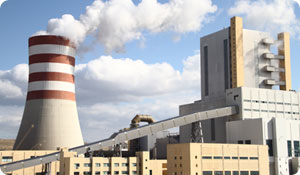
You go to great lengths to make sure your child gets enough sleep, eats a balanced diet, and avoids second-hand smoke. Yet even your best attempts at healthy living may not be enough to prevent him from developing asthma. This could be because your efforts are coming a little too late.
Researchers from the School of Public Health in Denmark have discovered that pregnant women who are exposed to airborne pollution at work could be putting their unborn children at an increased risk for having asthma in the future.
Research on Maternal Workplace Pollution
The scientists looked at the records of close to 50,000 7-year-olds and their mothers to determine the relationship between the women's contact with various on-the-job pollutants and a childhood asthma diagnosis. They used the woman's job title during her pregnancy in order to determine what type of exposure she had during this crucial time period and to see the possible impact it had on a child's health.
Based on this information, they determined that 18.6 percent of those children whose mothers were around irritants and small particles in the air while pregnant developed asthma. This is compared to only 16.1 percent of children who developed asthma in the general population. This information, which was presented in September of 2011 at the European Respiratory Society's meeting in Amsterdam, is the first large-scale confirmation of the possible relationship between maternal prenatal workplace pollution exposure and later childhood asthma.
Further Exploring Childhood Asthma
While the numbers aren't all that dramatic, the researchers do believe that there's enough of a measurable difference between the groups to lead them to continue to explore the maternal exposure and childhood asthma link. Subsequent studies will also need to look more closely at specific chemical and pollutant exposure and job conditions to help provide a clearer picture of exactly when and where the highest risks for the fetus' development exists.
Other Factors Impacting Childhood Asthma Risk
Other studies have found similar links to moms' prenatal experiences and asthma development. For instance, at an international conference of the American Thoracic Society in 2008, Harvard University researchers released the results of a study that confirms that when pregnant women experience stressful events, the unborn children's developing immune system becomes compromised and the risk of asthma and other allergic conditions increases. Another study, this one included in 2009's Journal of Allergy and Clinical Immunology determined that maternal anxiety and/or depression during pregnancy also increases a child's asthma risk.
What This Means to You
All these findings can serve to reinforce a bigger message: A number of factors that occur during the prenatal period may be crucial to the development of your child's immune system and her risk of having asthma and allergies later on.
More research needs to be done to better understand these relationships and present some guidelines for pregnant women to help minimize their child's asthma risk.
In the meantime, if you're pregnant or are planning on becoming pregnant in the future, consider your lifestyle choices and exposure to chemicals, stress, smoke, and anything else that could influence your unborn baby's likelihood of developing asthma and other chronic conditions.
Sources:
Cookson, Hannah et al. "Mothers' Anxiety During Pregnancy is Associated with Asthma in their Children." Journal of Allergy and Clinical Immunology 123 (4) (April 2009): 847-853. Web. 20 Jan. 2012.
Goodier, Rob. "Workplace Pollutants Tied to Kids' Asthma Risk." Reuters. Reuters Health, 6 Oct. 2011. Web. 7 Jan. 2012.
Peters, Jeannette. "Statistics on Childhood Asthma in the U.S." Harvard School of Public Health. American Thoracic Society International Conference, 16-21 May 2008. Web. 120 Jan. 2012.





